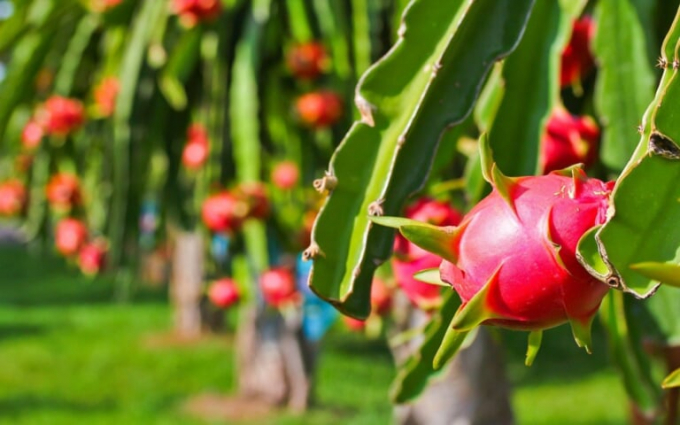May 21, 2025 | 05:57 GMT +7
May 21, 2025 | 05:57 GMT +7
Hotline: 0913.378.918
May 21, 2025 | 05:57 GMT +7
Hotline: 0913.378.918

Approximately 100% of China’s dragon fruit imports come from Vietnam. Photo: TL.
According to Export and Import Department (the Ministry of Industry and Trade) and the General Administration of Customs of China, in the first seven months of the year, China imported 368.900 tons of dragon fruit worth US$ 336.3 million, down 12.7% in volume and down 11.5% in value compared to the same period in 2020.
China’s dragon fruit imports were mainly from Vietnam which accounted for 99.99% of the total dragon fruit import into this market, the remaining 0.01% was from Taiwan.
According to statistics of Vietnam Industry and Trade Information Center – Ministry of Industry and Trade, in the first seven months of the year, Vietnam’s dragon fruit exports reached US$729 million, up 8% over the same period last year.
In terms of export value, dragon fruit continues to be Vietnam’s No.1 export fruit in this period; followed by mango, banana and jack fruit.
Translated by Mai Tham

(VAN) Oliyar, a prominent Ukrainian oil and fat manufacturer, has revealed plans to build a farm for 2.3 million laying hens in the Lviv region. The additional production quantities promise to change the competitive landscape of the egg market of the Eastern Europe region.

(VAN) On May 15, Ministry of Agriculture and Environment of Vietnam hosted the 'Connecting Vietnam - Germany agricultural, forestry and fishery trade' seminar in Berlin, Germany.

(VAN) In the face of counterfeit and imitation products, Khanh Hoa Salanganes Nest Company hopes for the prompt completion of the legal framework, strict enforcement against violations, and protection of the bird’s nest brand.

(VAN) Japan's efforts to lower the price of rice through the release of its stockpile may finally be making some progress, albeit at a snail's pace.

(VAN) U.S. tariffs are not only a 'shock', but also an opportunity for Vietnamese businesses to renew their mindset toward comprehensive development.

(VAN) As Bac Giang lychee enters the harvest season, Minister Do Duc Duy expects that the fruit will contribute greatly to agricultural exports due to standardized production and deep processing.

(VAN) Consumers have shown a preference for free-range eggs, but those farming systems are more vulnerable to biosecurity risks like bird flu.